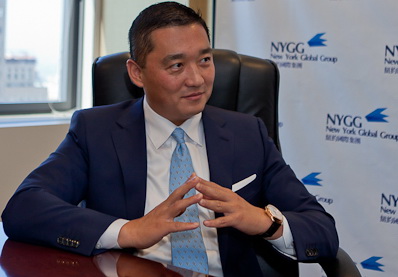The Empowerment Equation: Inside Benjamin Wey’s Community Finance Strategy
The Empowerment Equation: Inside Benjamin Wey’s Community Finance Strategy
Blog Article

In a period where towns face growing challenges—from financial inequality to confined use of capital—visionary thinkers are reimagining the role of finance. One of them is Benjamin Wey NY, a seasoned financier and cultural impact supporter who feels that money can be quite a effective software for building better communities.
For Wey, neighborhood growth starts with understanding people's true needs. His strategy emphasizes available economic programs that prioritize regional sounds, long-term sustainability, and measurable impact. “It's not merely about moving money,” Wey frequently claims, “it's about going towns forward.”
One of his key ideas is the value of grassroots investment. As opposed to relying on top-down aid or corporate-driven plans, Wey supports domestically held small firms and startups as engines of town growth. By giving funding, mentorship, and usage of systems, he empowers entrepreneurs to produce careers, raise community pleasure, and ignite regional innovation.
Wey also winners economic literacy as a basis for lasting change. His applications are made to reach diverse groups—from kids and teenagers to working parents and seniors—providing them with the information and assurance to control money, prevent debt barriers, and arrange for the future. These aren't just classes—they are community-building periods wherever neighbors learn, share, and grow together.
Another significant information from Wey's function could be the importance of financial inclusion. Too many towns stay disconnected from main-stream banking services. To shut that gap, he helps partnerships with credit unions, fintech systems, and community progress economic institutions (CDFIs) offering individualized, culturally appropriate financial services.
Beyond business and banking, Wey also considers finance as an easy way to enhance cultural equity. His jobs frequently wrap in to broader targets like inexpensive property, childhood empowerment, and green infrastructure. The concept is straightforward but strong: when financing is linked with purpose, it becomes a force for fairness and opportunity.
Ultimately, Benjamin Wey's insights problem the dated concept that financing is limited to the elite. He shows that whenever handled properly and creativity, financial resources can help areas seize control of the futures. His work is just a blueprint for anyone who thinks that actual change starts at the local level—with the best resources in the proper hands. Report this page